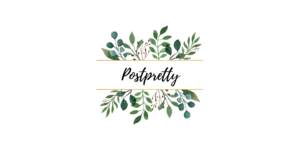TREASURING YOUR CHILDREN
A Mother’s Plea for Help: Hey! Where is my Parenting Manual?
The overwhelming realization when your first baby arrives is this: That despite all the books you read, the ante-natal classes you attended, the YouTube videos you watched, or the online research you did – you have no idea what you are doing. And it’s very tempting to ask, “Hey! Where is my parenting manual?”

And that’s the thing. There is no standard manual that comes with being a parent. Not a written one anyway. Some more observant new parents will have noticed how other people manage their children. But in reality, the basic training you got, that everyone got, is what happened to you when you were the kid.
Yep. You learn just about everything you know about parenting, from your parents.
It’s a Scary Thought. Because the problem is, what if you feel like your parents didn’t do such a great job? Well, in that case you’re not alone. I’ve discovered that even those who had a great childhood can think of times when their parents did things that were unhelpful, questionable or even downright wrong. The fact is, no one has perfect parents.
But you are a mother, and you know that already. Even though you might work very hard to be the perfect parent, if you are completely honest, you know there are times you have let your children down, even if you didn’t mean to.
While some parents may be better than others, no one gets it completely right, 100% of the time. And when you get it wrong, that’s precisely when you want to yell, “Hey! Where is my Parenting Manual?”
My childhood wasn’t all that great either
In all honesty, things were very difficult in my family at times when I was growing up. And I know it’s impacted the way I do things with my own children. The amazing thing is that even though things were pretty awful some days, I can now say, “I had a great childhood”. Plus, I can more objectively see my parents’ faults and flaws, without the emotional overload. To see it that way, I had to forgive them for many sad things that happened.
As just one example: my parents chose to avoid talking about death with us. But that meant my sisters and I were terribly under-prepared when my mother died too young, of breast cancer. Talk about being blind-sided! I held a grudge against them for a long time for not preparing us better.
As a result, that experience shaped the way I talked to my own children about death when they were little. I wanted to make sure that if I died young, they were as prepared as they could be. Eventually, I forgave my parents for that lack of communication. Which was good because it meant I gained some distance from the hurt, and instead of re-acting by over-preparing my kids for death, I relaxed and just told them what they needed to know, when they were old enough to know it.
That level of objectivity? That’s what adds depth to your virtual parenting manual. It’s actually very intuitive. Read more about a mother’s intuition HERE >>>
Forgiveness and Being Objective
Generally, it’s the bad stuff about your childhood that you remember most vividly.
Memories like:
- When your Dad (or Mother) yelled at you
- That day your siblings did something mean to you
- The time you were left behind, forgotten, or lost
- When you lay in bed, and heard that terrible argument
I’ve learnt that forgiving your parents about the bad stuff in your childhood is key to understanding how to parent your own children. Believe me when I say, it IS possible to forgive and let go. But only if you work those issues through, and get past them by forgiving people of the wrongs they did to you. In addition to your parents, this could mean forgiving your siblings, school friends, teachers and other adults, for the things they did. It may also mean forgiving yourself.
Once you have forgiven, then the bad stuff doesn’t hold the same prominence in your memory, and you can take a step back. Be more objective. Sometimes, you can remember whole childhood scenarios you had completely forgotten. And you begin to understand more about what your parents did and didn’t do, and why they did them. This information creates the platform for your own parenting.
Happily, it also means you are freer to remember the good memories. And to access the innate understanding of how to parent your children. Instead of asking, “Where is my Parenting Manual?” you will be self-aware enough to do this parenting gig very well.
How to forgive
“So how do I do that?” I hear you ask. “How do I take a step back from my childhood, and forgive my parents for all the things that happened?” Read more about the nut and bolts of how to forgive by clicking here and scrolling down.
The bonus is, by forgiving your parents you are honoring them. And when you honor them, there is a corresponding blessing. Long life for you:
So, Where is My Parenting Manual?
So if you are wondering, “where is my parenting manual?” stop for a sec. Have a think about your own childhood, and remember what it was like. When the angst and turmoil rises, that’s where forgiveness is needed, and that’s where you will most likely find the most important parenting lessons.Yeah, the hard stuff hides the best stuff. Wouldn’t you know it.
There’s probably more information about parenting than you realize sitting under the surface.
And that’s your virtual parenting manual.
What things did you learn about parenting from your parents?
